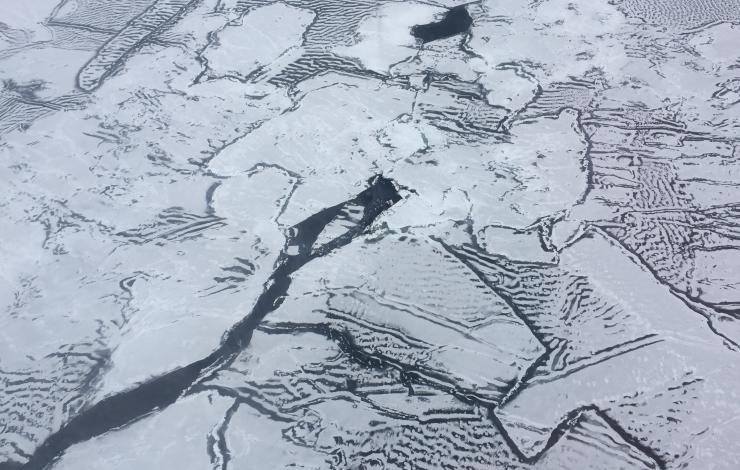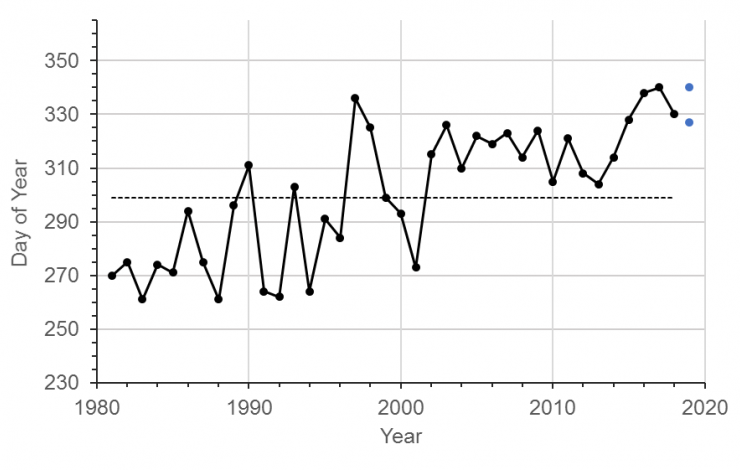
A mosaic of young sea ice captured during a flight campaign over the Chukchi Sea launching various atmospheric and oceanographic probes and floats.

The black dots show the observed day of year that sea-ice concentration in the reference area northwest of Icy Cape first reaches 30%, as determined from passive microwave data. The blue markers show the range (14 days) of the projected onset of freeze in 2019. The dashed line shows the long-term mean (1981-2016).
PMEL has released an experimental annual freeze-up projection for the Chukchi Sea continental shelf northwest of Icy Cape. The freeze onset is projected to begin between 23 November and 6 December 2019. This is 28-41 days later than the long-term average (1981-2016). At freeze-up in 2019, sea-ice in the northwest of Icy Cape will consist entirely of thin, newly formed types (e.g. sheets and thin pancake), especially near the coast. For this projection, the onset metric is defined by sea-ice concentration reaching 30% as determined by passive microwave observations collected in the area around Icy Cape in the Chukchi Sea.
The data considered in this projection includes observations collected from autonomous ocean profiling floats, aircraft and satellite-derived visible imagery, and SST radiometry in 2016, 2017, 2018 and 2019. Persistence of sea ice was evaluated using historical ice concentration data from passive microwave satellites, provided by the National Snow and Ice Data Center (NSIDC).
The purpose of this experiment is to develop an informed basis for advising a hypothetical maritime interest operating in the region and to identify conditions that cause sudden large departures (increase in risk). It also provides a result that can be evaluated against other methodologies. Data from various technologies deployed during the Arctic Heat flight campaigns help to fill in data gaps in the Arctic and determine limiting factors in projecting sea ice freeze up in hopes of improving seasonal model forecasts.
Read the full projection and rationale here: https://www.pmel.noaa.gov/arctic-heat/projected-onset-freeze-chukchi-sea-continental-shelf-2019
Learn more about the work being done on the Arctic Heat page: https://www.pmel.noaa.


